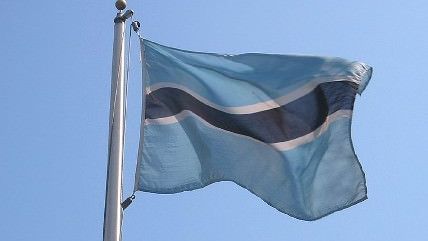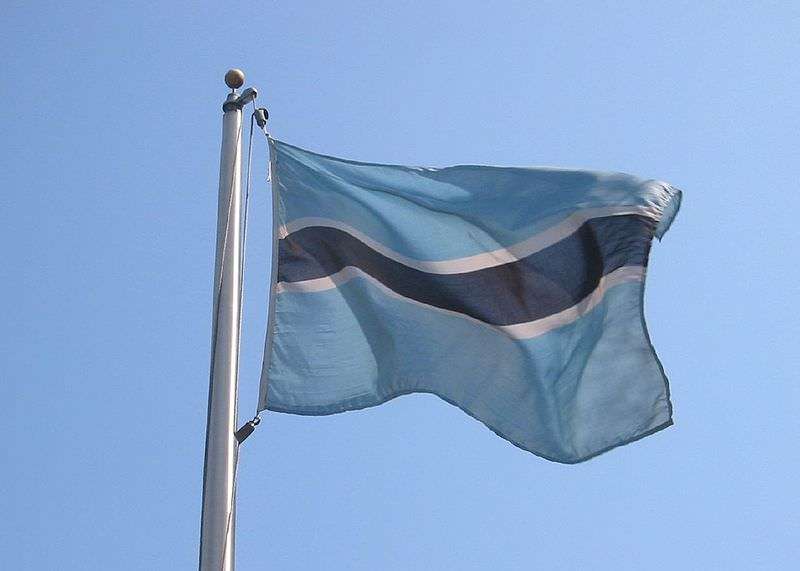Botswana Again Ranked as the Least Corrupt Country in Africa


Today, Transparency International released its annual Corruption Perceptions Index. This year, New Zealand and Denmark tied for the least corrupt countries in the world, and Somalia, North Korea, and Afghanistan were all given the same ranking at the bottom.
Unsurprisingly, conflict areas have experienced worsening corruption, and corruption remains high in much of the Middle East and Africa.
Map from the 2013 Corruption Perceptions Index below:
While much of the survey's findings might not be especially striking, it is worth pointing out that Botswana has once again been ranked as the least corrupt country in Africa. This year, Botswana was ranked as less corrupt than many countries in Europe such as Portugal, Spain, Italy, and Greece (which has improved upon its 2012 score).
A press release from the government of Botswana cites a number of bodies as contributing factors to Botswana's comparatively impressive ranking:
Botswana's success in the annual survey over the years has been attributed to our zero tolerance approach to corruption buttressed by the putting into place of multiple oversight institution, such as the Directorate on Corruption and Economic Crime (DCEC), Public Procurement and Asset Disposal Board (PPADB), the Competition Authority and the Financial Intelligence Agency.
Botswana, as well as being the least corrupt country in Africa, is also one of Africa's freest economies. This year, the Heritage Foundation ranked Botswana as the 30th most economically free country in the world in their annual Index of Economic Freedom (the only African country to rank higher than Botswana in this index was the island nation of Mauritius).
As Scott Beaulier, Associate Professor of Economics at Troy University, has pointed out, some of the early market reforms adopted by Botswana's first president, Seretse Khama, were motivated in part by a desire to reduce corruption (emphasis mine):
Unlike other African leaders, Khama's program simultaneously adopted pro-market policies on several important margins. For example, Khama's new government promised low and stable taxes to mining companies. His government opened the doors both to trade and to people. Furthermore, he kept marginal income taxes low to deter tax evasion and corruption.
It should not be a surprise that there is a relationship between economic freedom and corruption, as Ambassador Terry Miller and Anthony B. Kim pointed out in Chapter 1 of the Heritage Foundation's 2012 Index of Economic Freedom:
Corruption can infect all parts of an economy; there is a direct relationship between the extent of government regulation or other government intervention in economic activity and the amount of corruption. Almost any government regulation can provide an opportunity for bribery or graft. In addition, a government regulation or restriction in one area may create an informal market in another. For example, a country with high barriers to trade may have laws that protect its domestic market and prevent the import of foreign goods, but these barriers create incentives for smuggling and a black market for the restricted products.
More from Reason.com on Africa, corruption, and capitalism here, here, and here.
Editor's Note: As of February 29, 2024, commenting privileges on reason.com posts are limited to Reason Plus subscribers. Past commenters are grandfathered in for a temporary period. Subscribe here to preserve your ability to comment. Your Reason Plus subscription also gives you an ad-free version of reason.com, along with full access to the digital edition and archives of Reason magazine. We request that comments be civil and on-topic. We do not moderate or assume any responsibility for comments, which are owned by the readers who post them. Comments do not represent the views of reason.com or Reason Foundation. We reserve the right to delete any comment and ban commenters for any reason at any time. Comments may only be edited within 5 minutes of posting. Report abuses.
Please to post comments


How can Somalia have the most corrupt government when they don't have a government?
Lack of roads.
Furthermore, he kept marginal income taxes low to deter tax evasion and corruption.
The problem is not with people buying favors from the government; it's that the government has those favors to sell in the first place.
(And I say "avoision".)
I've been there several times, it is an incredibly different experience than Namibia or (obviously) Zimbabwe. It's too bad they effectively banned hunting, thus ending my only reason to go there.
Just a shame they're landlocked, or it would be a lot easier to trade with them. Fortunately, Namibia isn't too bad, certainly not by African standards.
No, it's not bad at all. I did get shaken down by a cop there once. I really don't know why I paid him, he didn't have a gun and I was in a borrowed car, but it was like N$150 which is only something like $15 US. It's not uncommon for cops to set up local checkpoints and act like the road is a turnpike and demand a toll of foreigners, but they usually get away with it because they only charge some trifling amount (N$10-20).
They really love Americans in both countries and I think it's for one of the reasons that perplexes Eurotrash, tipping. Plus they really look up to Americans.
South Africa is something else entirely. I was straight up robbed by a police patrol in the John Taolo Gaetsewe District of Northern Cape while visiting a friend from high school. This was after being mugged and roughed up in J'burg.
In Zimbabwe the people were nice enough, but it is so depressingly poor that no normal human can go unaffected by the crushing deprivation.
We got shaken down near Bulawayo in Zimbabwe back around '98. We were on our way to Vic Falls, which is a fairly common tourist route.
I never had a problem with cops in South Africa, other than their worthlessness. I'm not a fan of proactive policing, but reactive makes some sense to me - they couldn't even do that. You had to have private security systems if you expected emergency response.
Is alt-text corrupting or something?
Feeney went to a UK boarding school where they beat him whenever he use alt-text.
Seriously, though, Matthew, you can just use descriptive alt-text if you don't want to joke around.
Mma Ramotswe will be so proud.
+1 lady detective
As I noted in the AM links, it's amazing how closely lack of corruption and economic freedom go hand in hand.
Those god damned Canucks, lording their less-corrupt ways over us.
So, it's kind of like being the tallest pygmy, except the actual pygmy's live north of Botswana.
I lived in the capital, Gaborone, for three years growing up. The government is a huge shareholder in the diamond mining, which supports a lot of the infrastructure.
The most important thing is that Botswana remain the freest in the region. South Africa is a large market, and has a more generous free exchange agreement with Botswana, Lesotho, Namibia, and Swaziland.
So the two freest countries in Africa, Botswana and Mauritius, are also the only ones with an unbroken history of Democracy. I know Democracy gets bad-mouthed a lot on this site (and the criticisms are usually legitimate), but it's still a lot better than any of the alternatives.
I read something a few years ago (I don't remember where) that said Botswana was expected to become the first African country with a middle-class majority sometime this decade. I haven't seen any recent figures, so does anyone know how close they are now? I realise different sources will give different answers since there is no clear standard definition of middle-class.
IIRC, their per capita GDP is something like $13k. That's distorted a bit by the huge diamond mining industry, but I'd imagine the quality of life is better there than in several South American countries.
He's part of the Obama administration. I'm pretty sure it's both.